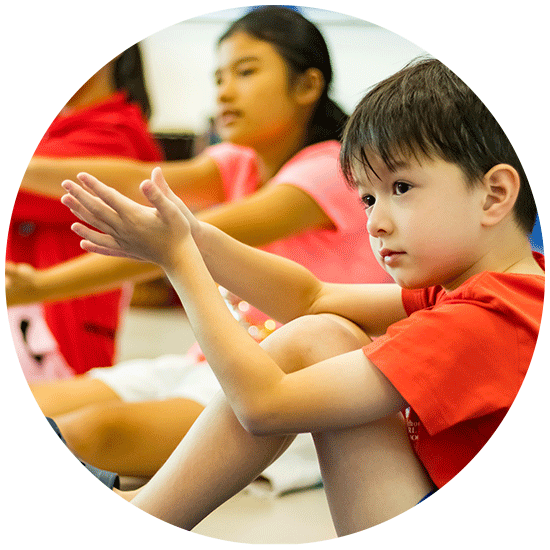High-quality education all around the world from the start itself.
BMI is setting up high-quality Montessori schools all around the world

Pre School
Our Montessori schools are created them self-discipline, responsibility, and free from dependence
Know more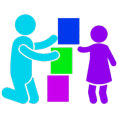
Playschool
Both playing and learning together aiming for their upcoming educational growth and development.
Know moreDaycare baby School
Without giving the feel about the absence of parents leaving children at home can be difficult for working parents.
Know moreBMI PRESCHOOL
BMI is setting up high quality Montessori schools in all around the world centralizing in Dubai by aiming the promotion of Montessori method of education. Our school’s philosophy is based upon Dr. Maria Montessori’s vast understanding of children and their natural tendencies to explore and become independent. Montessori is an approach to working with children that is carefully based on what has been learned about children’s cognitive, neurological and emotional development. In early childhood, Montessori students learn through sensory-motor activities, as well as working with materials that develop their cognitive skills through direct experience: seeing, hearing, tasting, smelling, touching, and movement.
Children are innately curious about the world around them, and the classroom is a place where the child is able to move freely and choose from a multitude of fascinating materials to interact with, in a peaceful and serene atmosphere. Dr. Maria Montessori believed that all children are unique and learn at their own pace. Children should always have the opportunity to advance and develop according to their pace. Maria Montessori believed that instead of forcefully teaching a child, teachers should instead become “directors” and “quietly follow the child” to understand what interests the child and where their strengths and weaknesses lie. By observing the child carefully, our trained Montessori teachers are able to create learning experiences and cater a curriculum based on the individual child to encourage real learning and growth, giving children the ability to be active participants in their educational journey.
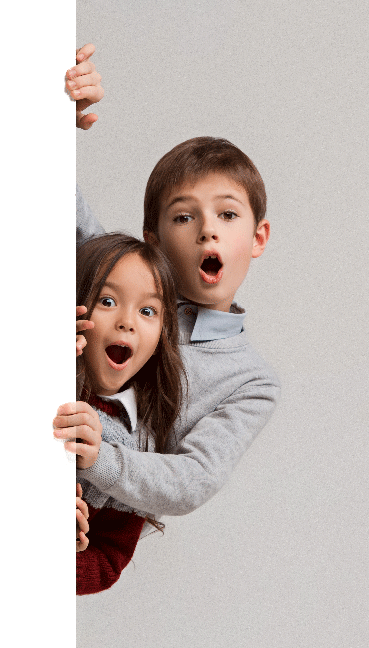
Class room
BMI an early childhood Montessori classrooms are designed to feel children more like at home than in the school. Neither traditional desks, nor will a teacher stand at the front of the children delivering lessons to the whole class. Instead, children work happily, Individually or in small groups with cooperation and patience at tables, on the floor or on the mats that delineate their own space.
Different aged children are learning, practicing, playing together in a single Montessori classroom. The child-sized furnishings and learning materials organized in such a way that children can move freely about the room to select and participate in activities in specific work areas during the day. The specifically designed materials are helped not only in learning subjects but also in memory development, concentration, focus and for self-correcting, so that they encourage children to learn on themselves under the real guidance of their directress.
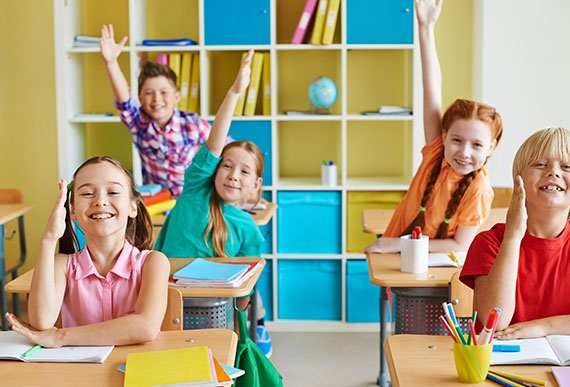
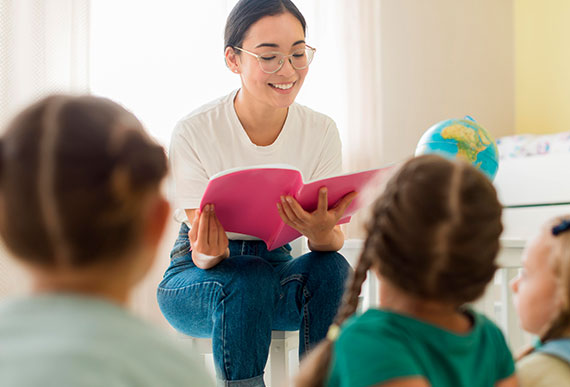
Environment
The classrooms are replaced by environment in Montessori method of education. The environment is displayed with specially designed learning materials on open shelves, in an easily accessible manner to the children. Environment also includes low sinks accessible to the children, child-sized furniture, cozy spaces for quiet reading, reachable shelves with work available for free choice, and child-sized kitchen utensils etc. so the children can eat, smash, fold, tear, curl, prepare, and clean up their tiffin, snack, fruits and milk by themselves and sharing. Teachers guide students gently to help maintain, create, mold, nurture and for the skills of organization, cleanliness and development. The environment is kept orderly, neatly and with an attractive manner also help children to understand, create and care for materials and clean up after themselves the skill can be practiced and utilized happily for observe and carrying themselves at homes. The environment is a created a model of real and natural surroundings of the world for practicing natural life activities.
Activities
All Montessori learning activities support children in choosing meaningful and challenging work at their own interest and their ability level. Children are directed to engage in strengthening activities, motivational programmes and support for attention, encouragement activities for responsibility. Some practical life activities are Pouring and scooping, Watering flowers, Ironing, opening bottle caps, washing clothes. gluing paper, sweeping, washing a window and door etc. Montessori Sensory Activities like Ribbon Ring, sensory balls, touching natural materials like silk, cotton, wood, nature exploration as crawling, walking, or playing with grass, dirt or sand, water play and tasting new foods. Mathematics are given such Number Rod Addition, short bead stair addition, addition animal game, addition strip board, Subtraction snake game, Subtraction strip board, short bead stair, Multiplication, multiplication board. Cultural games, Local festival celebration, charity events, parades, sports, events, dance and music competitions, Painting competitions, debates and speeches, exhibition and workshops are such activities for the child development.
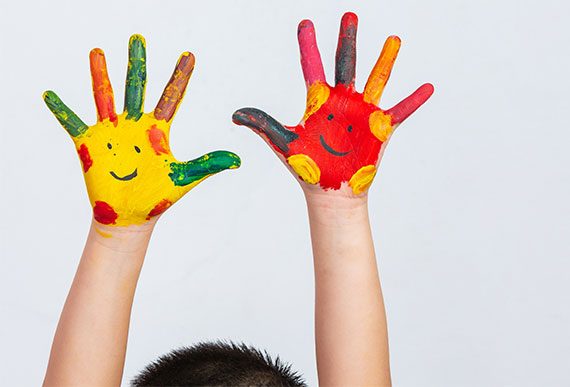
The teacher is the guide
In the Montessori Early Childhood classroom, highly trained teachers are called or directress, create a friendly customized empowering environment crafted with her unique talent, abilities, interests, enthusiasm, observation skill, flexibility in character in learning and in guiding style.

Children
The Curriculum
The Montessori Early Childhood curriculum follows as 2- 6year sequence. It includes motor and finer motor to mental, biological, intellectual development of the child along with understanding the world as such and inside and outside of the world as universe. the curriculum to sow the seed in the mind of child to sprout out the genius in to the world. The basic elements of these process are calculated by the subject which are taught in the early childhood days as foundation about the future. The subjects are taught practically and scientifically in the environment by the mentor. Practical life, sensorial, mathematics, language and culture are the compulsory subjects which are practiced in Montessori preschools.
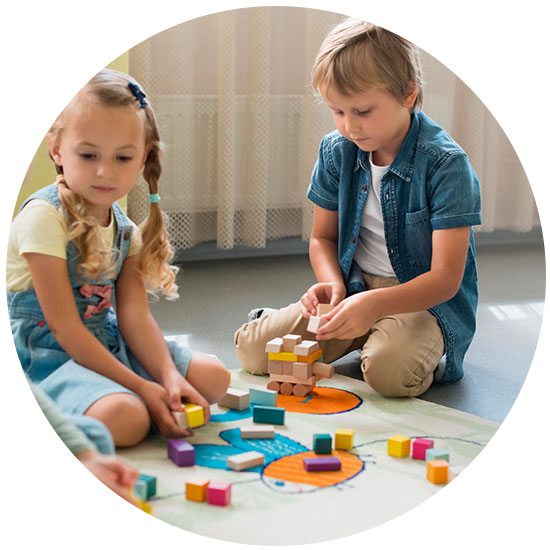
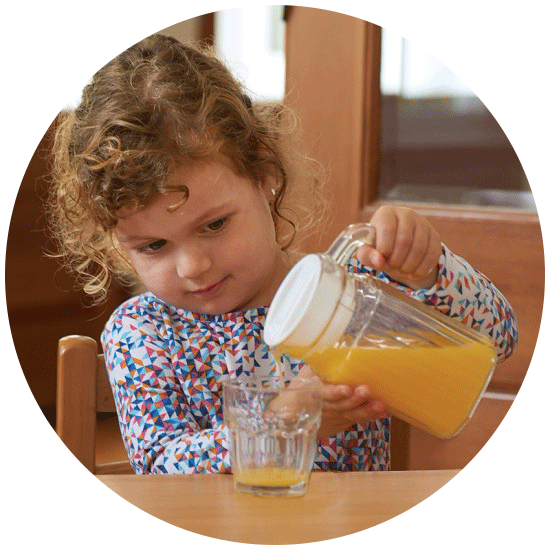
Learning practical life in Preschool
Children learn daily-life activities and develop skills by wearing dress, preparing and making ready fruits or snacks, set the table clean and suitable for dine, and learn to care for plants and animals will develop their love for nature. They also learn an appropriate social interactions and table manners practice such as saying hello, hi, please, sorry, excuse me, and thank-you, being kind, helpful, empathetic and sympathetic towards living beings and all creatures. Give practices for developing listening habit without interrupting, and resolving conflicts peacefully. In addition to teaching specific skills, Practical Life activities promote independence, and fine- and gross-motor coordination.
Learning Mathematics at BMI preschool
Montessori Mathematics hands-on activities, children learn practically to identify numerals and match them to their quantity, understand place-value and the base-10 system, and practice addition, subtraction, multiplication, and division. They also explore patterns in the numbering system. With an exploratory approach, children do more than just memorize math facts; they gain a firm understanding of the meaning behind them. The children lean to count zero up to six digits without any hesitation. Each and every activity develop their mental and practical, logical and numerical strength in mathematics.
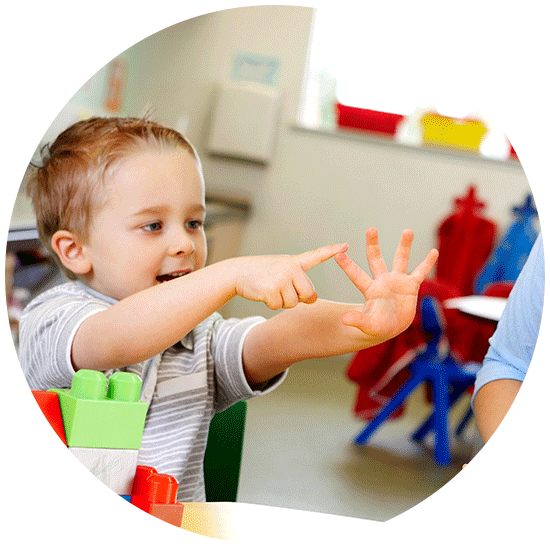
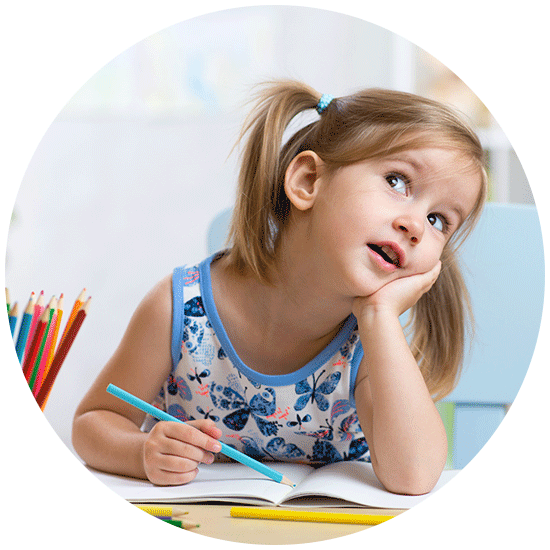
Learning Language at BMI Preschool
BMI Early Childhood Montessori classrooms give an opportunity for children to develop their language skills in listening, speaking, reading and writing. It also helps children to acquire vocabulary, practical grammar, usage and pronunciation. They develop finer skills which is needed for writing with pen and pencil. The ability to write, a precursor to reading, is taught first. Using hands-on materials with multi activities, children learn to read and write letters sounds, and they become able to combine multiple sounds together, try to add vowels together to read diphthongs and tri thongs together to make words. Later they learn to join the words together and learn to build and read sentences. The reading ability will be created then the writing too. The teachers’ language inspires the children to listen and talk spontaneously.
Learning Culture & Cultural Subjects at BMI preschool
A wide range of subjects, including history, geography, zoology, botany, science, art, music, and culture are integrated in lessons in the cultural area of the Montessori curriculum. Children learn explore from and about their own community and the world around them. Discovering similarities and differences among people, and places helps them to develop an understanding and appreciation of the diversity initiatives of our world, and a respect for all living things, nonliving things, all beings and human beings irrespectively.
